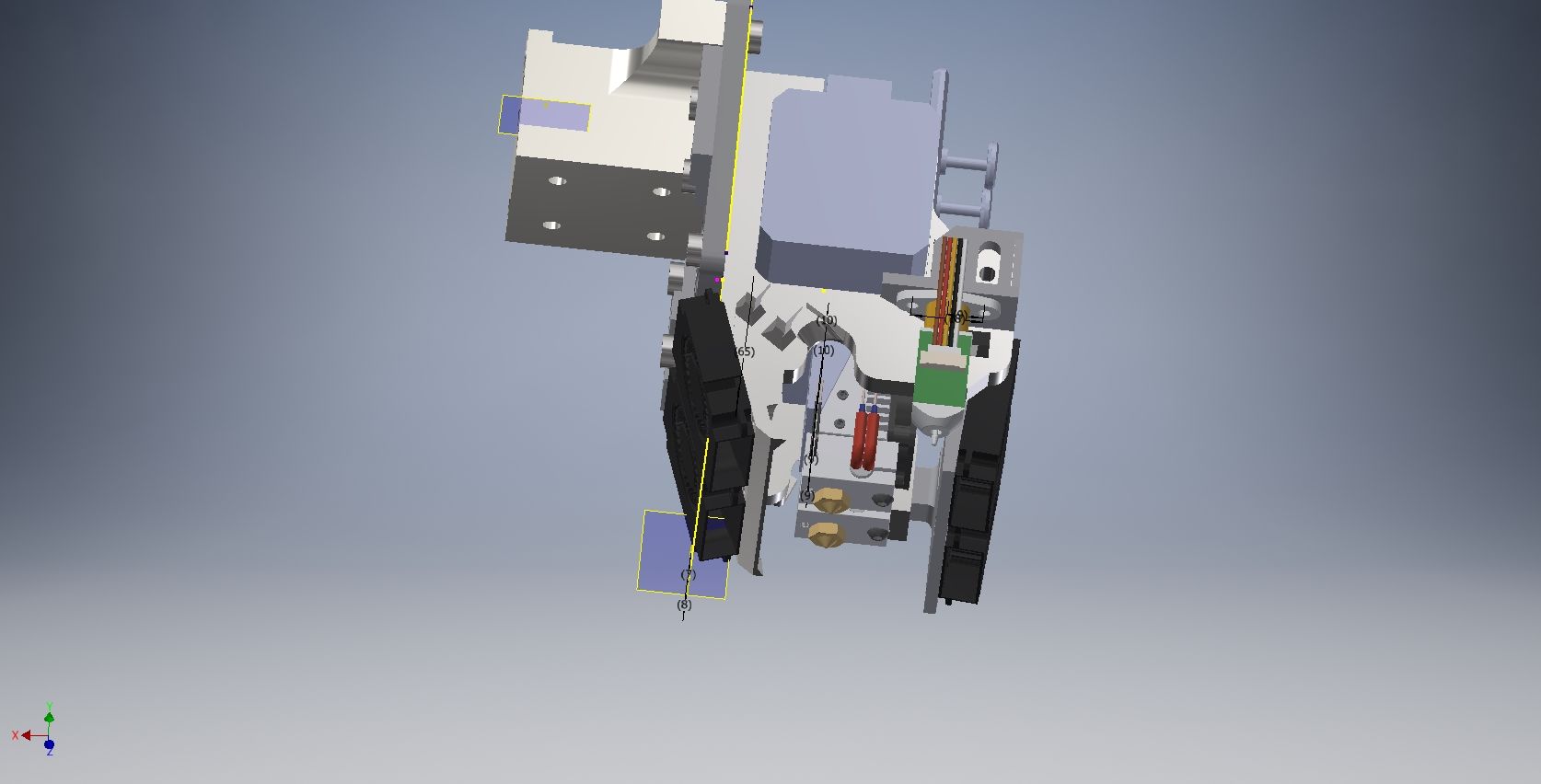last version fixed a few things
-
Well the last version of RRF seem to have fixed my issue were it seem my machine was suffering from buffering/stuttering on the infill causing printing time to be longer , now it actually seem to be zipping throw the infill without any issue and actually reaching demanded speed . savinf some time by a decent margin.
now just need to figure out the hotend so the temp keep dropping while printing ! my have to rip the 12 volt system and swap it for a 24v with some ssr pwm for both hotend , i cannot run the cooling fan more than 10% without having a big temp drop on this on a e3d chimera
-
@dad003 the usual ways of preventing a large temperature drop when you turn on the print cooling fan are:
- Make sure the print cooling fan directs air towards the print, not the nozzle and heater block
- Put a silicone sock over the heater block
-
Tuning the hotend heater as a tool will also help with the fan, but take care of the sock and aiming the duct first.
M303 T0 S245 for example will tune it as a tool and use the fan during the tuning to see how much it drops the temp and then compensate.
-
sorry for late response , here my head setup has it is right now , e3d chimera with a .8mm and .4mm nozzle
even with only 2 fan working at 10% , unless it at the limit of the flow , i did re calibrate the heater as well but still seem to be and issue using the .8mm nozzle mostly . My heater block have a silicone sock on them . him using the stock 30watt 12v heater from e3d thinking to maybe put a 40watt and see if it work better , or swap to 24V i would only have to add 2 more PWM SSR to control each hotend , even running a single fan from/ rear doesnt seem to change anything .
thinking it just the limitation of the 30watt heater, what do you think of this ?

-
If you intend to push a high flow through the 0.8mm nozzle it would likely be worth going to 40w 24v. You can also look at tuning heater flow rate feed forward as well.
https://docs.duet3d.com/en/User_manual/Reference/Gcodes#m309-set-or-report-heater-feedforward